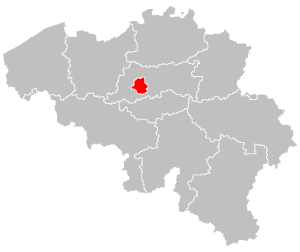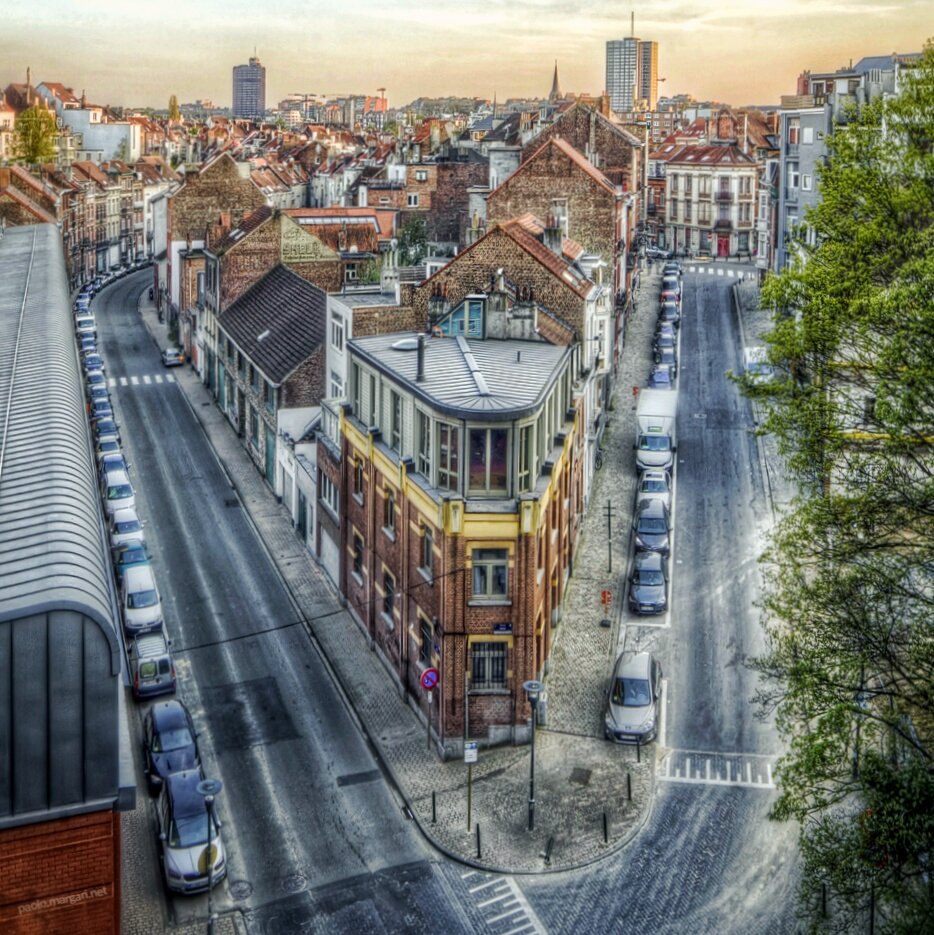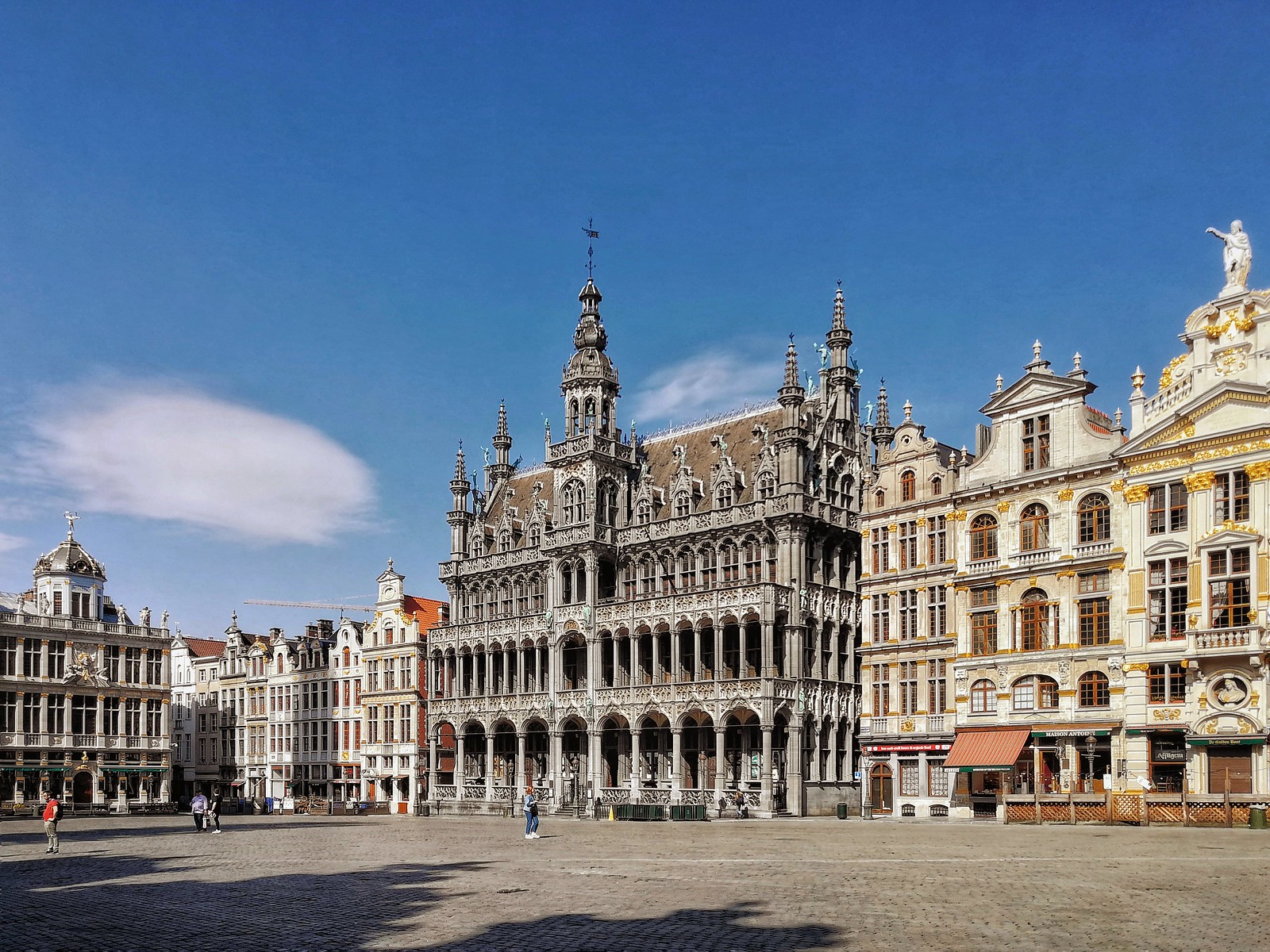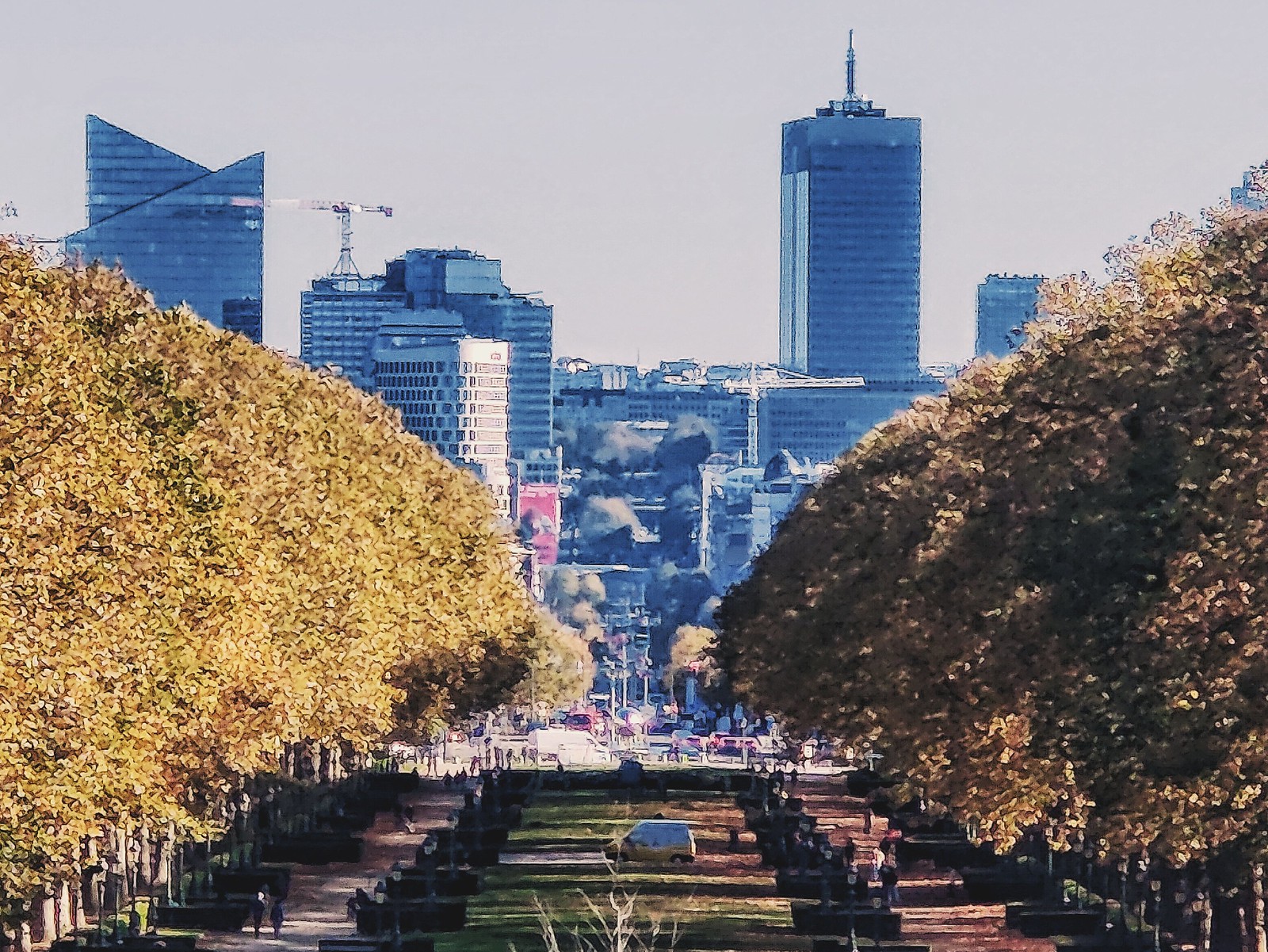 Brussels. The name instantly conjures up images of Manneken Pis, waffles, chocolate and the European institutions.
Brussels. The name instantly conjures up images of Manneken Pis, waffles, chocolate and the European institutions.
But the Belgian capital is much more than just a city of tourists and bureaucrats.
It’s a unique ecosystem, a vibrant hub that mixes cultures, business and a remarkable quality of life.
Whether you’re an aspiring expat, a daring entrepreneur or simply curious, here’s what makes Brussels tick.
 The Brussels-Capital Region, located in the centre of Belgium, is officially bilingual (French, the predominant language, and Dutch) and comprises 19 communes: Anderlecht, Auderghem, Berchem-Sainte-Agathe, Brussels (indicated by the postcode 1000, not to be confused with the region of the same name), Etterbeek, Evere, Forest, Ganshoren, Ixelles, Jette, Koekelberg, Molenbeek-Saint-Jean, Saint-Gilles, Saint-Josse-ten-Noode, Schaerbeek, Uccle, Watermael-Boitsfort, Woluwe-Saint-Lambert and Woluwe-Saint-Pierre.
The Brussels-Capital Region, located in the centre of Belgium, is officially bilingual (French, the predominant language, and Dutch) and comprises 19 communes: Anderlecht, Auderghem, Berchem-Sainte-Agathe, Brussels (indicated by the postcode 1000, not to be confused with the region of the same name), Etterbeek, Evere, Forest, Ganshoren, Ixelles, Jette, Koekelberg, Molenbeek-Saint-Jean, Saint-Gilles, Saint-Josse-ten-Noode, Schaerbeek, Uccle, Watermael-Boitsfort, Woluwe-Saint-Lambert and Woluwe-Saint-Pierre.

As of 2025, the population of the Brussels Region was about 1.25 million, with the metropolitan area having a population of approximately 2.78 million.
The Cost of Living in Brussels: A European Paradox
Brussels presents an interesting paradox. As the capital of Europe, you might expect prices to be exorbitant. The reality is more nuanced.
-
Housing: This is the biggest item of expenditure. Buying and renting prices are high, especially in the European districts (Léopold, Quartier Européen) or in popular areas such as Ixelles or Uccle. However, they are generally more affordable than in Paris, London or Geneva. If you move away from the centre, you’ll find opportunities.
-
Food & entertainment: Shopping can be reasonable, especially at local markets such as Les Abattoirs in Anderlecht. Restaurants offer a wide range of prices. Beer, the national jewel, remains surprisingly cheap compared with its neighbours.
-
Transport: The metro, tram and bus network (STIB) is excellent and moderately priced. The city is also becoming increasingly cyclist-friendly.
Brussels is not a cheap city, but it offers excellent value for money compared with other Western capitals.
Quality of Life in Brussels: The Belgian Art of Living
This is where Brussels truly excels.
-
Villages within the city: Brussels is a constellation of neighbourhood-villages, each with its own identity. You can go from the chic of Place Brugmann to the bohemian and Turkish atmosphere of Saint-Josse, or from the popular cachet of Marolles to the trendy dynamism of Saint-Gilles. There’s never a dull moment.
-
Culture and Green: The city is packed with world-class museums (Magritte, Oldmasters), concert halls and theatres. It’s also surprisingly green, with gems like the Cinquantenaire Park, Tenbosch and the Forêt de Soignes literally on its doorstep.
-
Geographical centrality: Located at the heart of Western Europe, Brussels is a rail and air hub. Paris, Amsterdam and London are less than 2 hours away by train. This is an undeniable advantage for both personal and professional life.
The Specificities and Particularities of Brussels: The Disconcerting Charm
Brussels has a character all its own, made up of contrasts.
-
Everyday Surrealism: Inherited from Magritte, surrealism is in Brussels’ DNA. It manifests itself in a touch of self-mockery, absurdist humour and an assertive ‘messiness’. The city isn’t smooth like other cities, it’s authentic.
-
Multiculturalism: Brussels is one of the most cosmopolitan cities in the world. This diversity can be felt in its streets, its languages (French, Dutch and English are omnipresent) and, of course, its culinary scene.
-
Multiple capitals: Brussels is the capital of Belgium, the Flemish Region, the Walloon Region (headquarters) and the European Union. This concentration of powers creates a unique energy and dynamic.
Entrepreneurship and Taxation in Brussels: A Stimulating Ecosystem
Brussels is not only the political capital of Europe, it is also an incubator for businesses.
-
The Startup Ecosystem: The city attracts many entrepreneurs, particularly in the tech and cleantech sectors and, of course, in European affairs (lobbying, consultancy). It has funds, incubators (such as BeCentral) and a pool of international talent.
-
Taxation: Belgium’s tax system is often perceived as cumbersome. However, there are significant advantages for expatriates. The expatriate tax regime allows, under certain conditions, very advantageous tax treatment for a limited period, making the net payable very competitive. For companies, the corporation tax rate is falling (25% in 2024, then 22%) and there is a “Notional Interest Deduction” system that can be attractive.
-
The economy: Brussels has a tertiary economy, driven by services, international institutions, company headquarters and tourism. It is a resilient and stable economy.
International Comparison: Brussels Square
-
vs. Paris/London: Brussels is smaller, more human and less expensive. It offers a better work/life balance without sacrificing international career opportunities.
-
vs. Amsterdam: Similar in size and international spirit, Brussels is often considered to be more authentic and less ‘touristy’. Its property market is slightly more accessible.
-
vs. Berlin: Berlin has a more effervescent creative and start-up scene, but Brussels offers economic stability and an unrivalled concentration of international institutions.
-
vs. Geneva: Brussels is cheaper, livelier and more culturally diverse, although Geneva can offer higher take-home pay in some sectors.
What makes it unique and different : The Brussels Feeling
So what is the secret of Brussels? It’s the perfect synthesis of several elements:
-
Accessibility of power: Nowhere else can you so easily bump into European decision-makers, diplomats and lobbyists in a café. It’s a city where things happen and networks are built.
-
A ‘Village’ Atmosphere on the Scale of a Capital: You have the culture, events and opportunities of a big city, with the sense of community and tranquillity of a human-sized neighbourhood.
-
Comfort without Pretension: The people of Brussels enjoy a high standard of living but remain down-to-earth. There’s no cult of appearances like you see elsewhere. Here, authenticity prevails.
Brussels is not a city that reveals itself immediately. Its charm comes over time, as you discover its cobbled streets, warm cafés and the energy of its inhabitants.
It is the ideal capital for those seeking a balance between a stimulating international career and a deeply human quality of life. It doesn’t try to compete with its neighbours; it simply cultivates, with pride, its own uniqueness.
Brussels key figures
Demography & Society
-
Population of the Brussels-Capital Region: Approximately 1.2 million inhabitants.
-
Cosmopolitanism: Nearly 70% of the population is of foreign origin. More than 180 nationalities are represented. After Dubai (UAE), Brussels is the world’s most international city in the world. More than half of its current residents were not born with Belgian nationality. Beyond migration factors, data are also affected by the presence of many international companies, institutions and organisations, starting from the European Union and NATO.
-
Languages: Although officially bilingual (French 80% and Dutch 20%), it is estimated that nearly 40% of Brussels residents use English as their main working language. French is the language spoken most at home. These three main contact languages are followed by Spanish (15%), Arabic (12%), Italian and German (both about 6%). Growing relevance of Portuguese, Polish, Romanian and Bulgarian.
Economy & Employment
-
GDP per capita: The Brussels-Capital Region’s GDP per capita is one of the highest in Europe, around 205% of the EU average (in PPS, 2021).
-
Employment rate: Around 65% (varying according to district and community).
-
Unemployment rate: Around 13% (higher than the national average, reflecting the challenges of socio-economic integration in a very diverse population).
-
Service sector: Over 90% of jobs in Brussels are in the service sector.
Cost of living & Housing
-
Property – Buying: The median price for a flat in Brussels is around €3,450/m² (2024). It can exceed €5,000/m² in the most upmarket districts (Uccle, Ixelles) and fall below €2,500/m² in others.
-
Real estate – Renting: The average rent for a 60m² flat is between €900 and €1,300 per month excluding charges, depending on location and standing.
-
Cost of living index (comparison with New York at 100):
-
Brussels: ~65-70
-
Paris: ~78
-
London: ~80
-
Amsterdam: ~75
-
Geneva: ~95
-
Tax & Entrepreneurship
-
Corporation tax: The standard rate is 25% (since 2024). A reduced rate of 20% applies to the first €100,000 of profits for SMEs (subject to conditions).
-
Expatriate regime (or “impatriate regime”): Up to 30% of gross remuneration may be exempt from tax for up to 8 years (subject to strict conditions for recruitment abroad).
-
Standard VAT rate: 21%.
To find your way around Belgium’s complex accounting and tax system, set up a business, calculate VAT, pay your taxes and optimise your tax situation, contact our accountants in Brussels.
Quality of life & Infrastructure
-
Transport:
-
The STIB network carries more than 400 million passengers a year.
-
200 km of cycle paths (growing).
-
-
Green spaces: Over 50% of the Region is made up of green spaces (parks, forests, private gardens).
-
Centrality:
-
1h22 by train to Paris (Thalys).
-
1h50 by train to Amsterdam (Thalys/Eurostar).
-
2 hours by train to London (Eurostar).
-
-
Education: Brussels has more than 10 higher education establishments and 5 major universities, attracting tens of thousands of students.
These figures confirm Brussels’ unique positioning: an international capital with a relatively controlled cost of living, a dynamic economy driven by services and a quality of life marked by its diversity and accessibility.
Photos
Video
Map
Useful links
- Weather in Brussels – IRM public service
- Top Events in Brussels
- Public transport (metro, tram, bus): STIB
- Tax Accountant Brussels
- Digital Marketing Services Belgium





